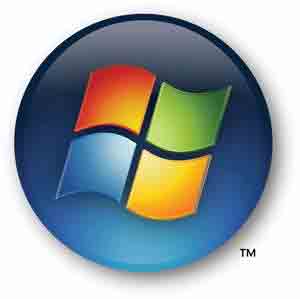
Back in 2002, software giant Microsoft signed a settlement agreement with the United States Justice Department after the company was found to have violated U.S. antitrust laws. Part of the consent decree included the Department of Justice monitoring Microsoft’s compliance with the deal by way of a corporate compliance committee. That oversight period comes to an end today; in theory, Microsoft no longer has to demonstrate to the federal government that it isn’t violating antitrust laws or engaging in anticompetitive behavior.
The details of the settlement were complicated, but in a nutshell Microsoft was found to have used its effective monopoly in the computer operating system market to suppress competition and strong-arm other companies. The terms of the agreement made it easier for computer makers to, say, include third-party Web browsers on their PCs as part of a default installation, or opt to remove Windows components like Internet Explorer and Windows Media Player if they wanted. The settlement also required Microsoft to offer uniform licensing terms, and release some technical data so third party developers could create products that fully interoperated with key Microsoft technologies.
There’s no denying the nature of the computing industry has shifted substantially since the consent decree was formulated. Internet search has become a major market—and Microsoft is still struggling to be a significant player there. Microsoft’s once near-complete dominance of the browser market has been whittled down: where Internet Explorer once accounted for well over 90 percent of the market, it now accounts for just over half.
However, where Microsoft’s Windows operating system used to account for about 93 percent of the desktop computing market, today it accounts for about 91 percent, according to recent figures from IDC. Microsoft’s operating system dominance—as well as they juggernaut of its Microsoft Office, Exchange, and server products—has scarcely shifted since the Justice Department consent decree went into effect.
The success of Microsoft’s desktop operating system and applications market—and the cash those businesses generate—has enabled Microsoft to sink billions of dollars into efforts like the Xbox gaming platform, which only started making money for Microsoft comparatively recently. Microsoft has also used its reserves to take on Apple’s iPod juggernaut (unsuccessfully with the Zune), Google’s Internet search dominance (with Bing), and now to leverage its way into the smartphone market with the Windows Phone platform (including , most likely, its brand-new $8.5 billion acquisition of Skype).
Few other companies could base their business strategies on sustaining years of substantial losses just to make sure they have a share of what they believe will be a lucrative market—and those strategies are fundamentally funded by Microsoft’s ongoing dominance of desktop operating systems and applications. New technology markets may have emerged since Microsoft was found to be abusing its monopoly power, but that finding—and the company’s settlement with the Justice Department—has not impacted Microsoft’s ability to leverage its Windows dominance.
Editors' Recommendations
- Is Microsoft’s new PC cleaner just an Edge ad in disguise?
- 6 Microsoft Edge shortcuts you need to try
- Microsoft backpedals on changing default browsers in Windows 11
- Microsoft Edge courts holiday shoppers with price alerts and price history tools
- How to uninstall Microsoft Edge


